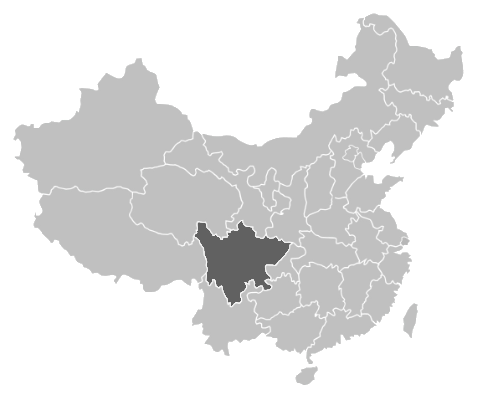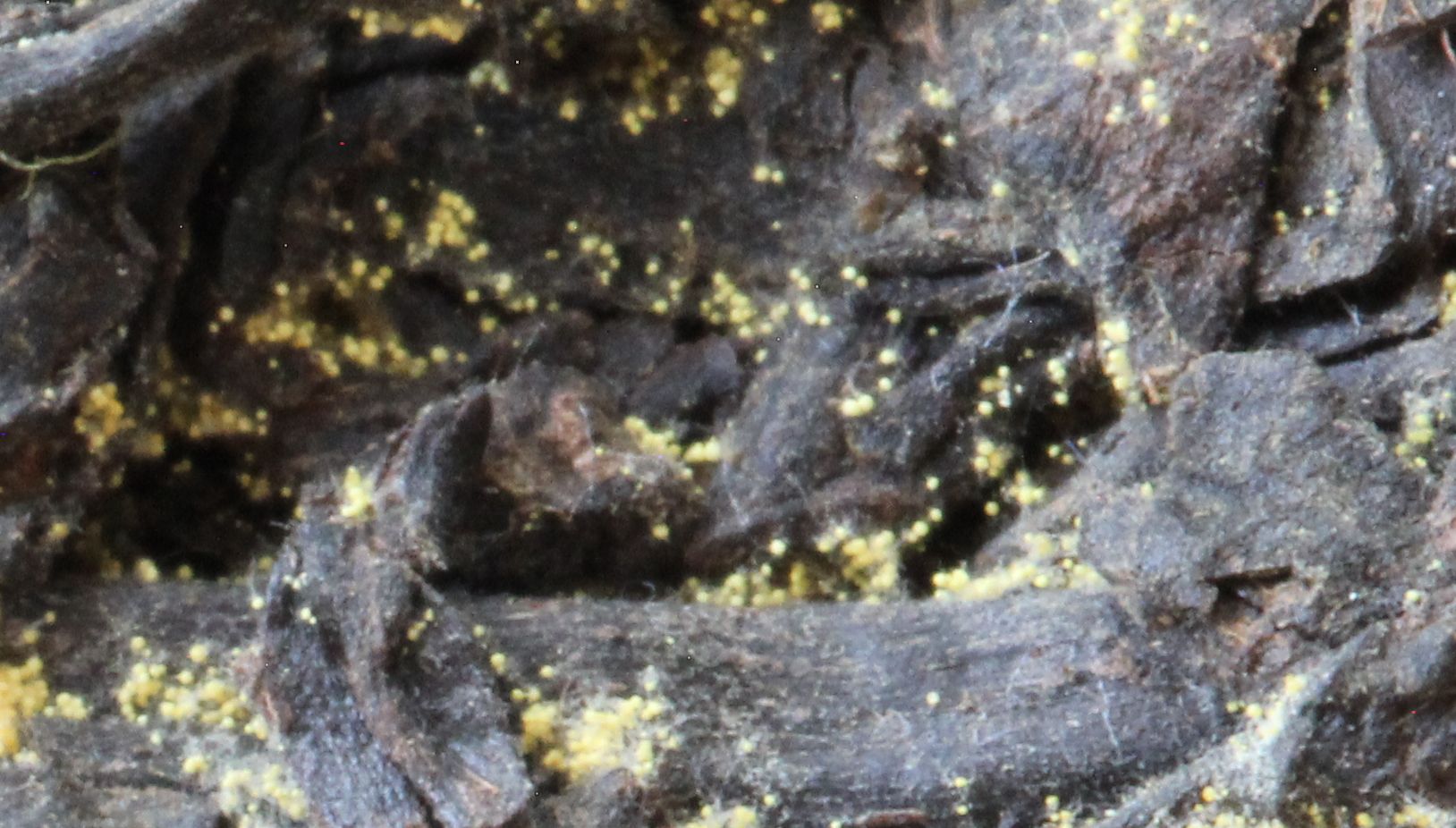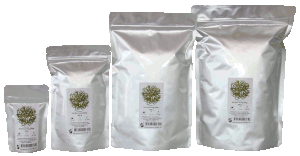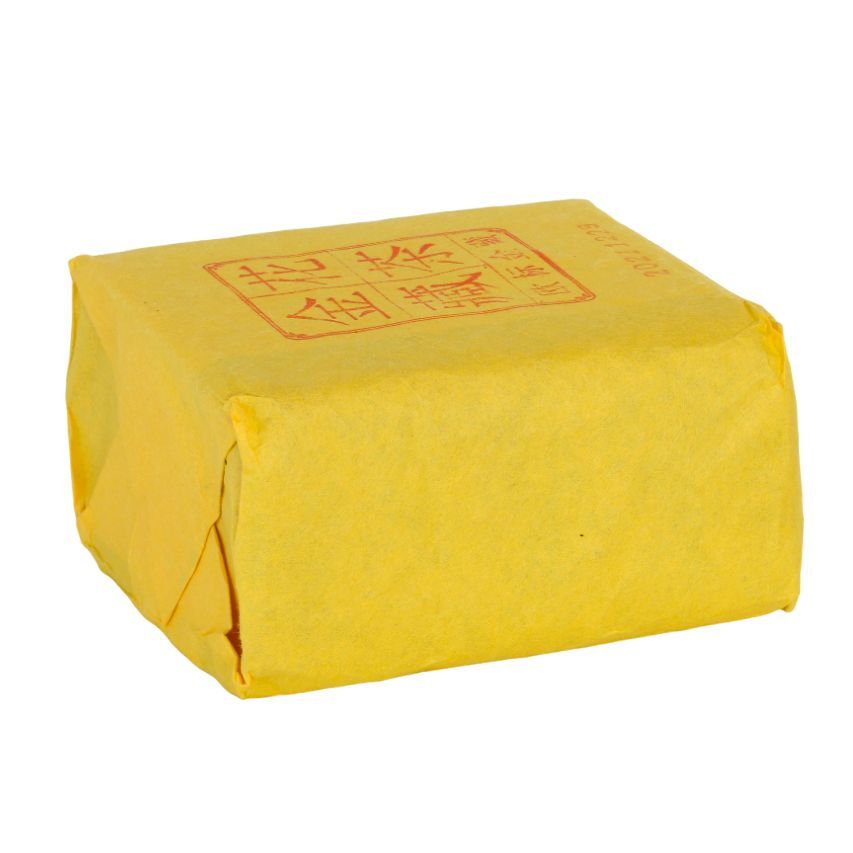We use cookies to make your experience better. To comply with the new e-Privacy directive, we need to ask for your consent to set the cookies. Learn more.
Golden Flower Zangcha
 Origin:
Origin:
Ya'an / China
Recommendation for the preparation: |
 |
 |
| 10 g / litre | >3 min. | 100 ℃ |
Preparation:
Lift 10g of tea from a pressed block with a tea needle and place in a sieve. Place the sieve in a heatable 1 litre teapot. Pour boiling water through the tea strainer into the pot. Continue to boil the water in the heatable teapot for approx. 3 minutes.
Alternatively, simply place the tea in a pot and pour boiling water over it. Pour the tea through a sieve later.
A 100g pack contains portioned (crushed) tea from a segment of Golden Flower Zangcha.
One block (500g) is wrapped in breathable paper (yellow). It is delivered in an airtight bag with a zip fastener. Smaller segments can be easily removed from a block, which simplifies handling. Harvest time:
Mid to end of April 2021
Volume discount:You will receive a discount of up to 10 percent on the purchase of our teas. Details can be found here.
Special characteristics:
 Golden Flower Zangcha is a deeply fermented (post-fermented) black tea. Its production is a traditional process, but hardly anyone has mastered its complexity today. Due to the complex, time and temperature-dependent processing steps, it is not possible to produce a sufficiently consistent quality for today's consumers. Today, the production of this traditional tea is therefore controlled and carried out by the largest state tea research institute in Sichuan in compliance with all quality standards. In the first step, the tea is stratified and stored. At the right temperature and humidity, a series of complex metabolic substances and enzymes are produced through microbiological processes. This corresponds to the conventional production of black tea. The tea is then inoculated with special enzymes, moulded and stored at a precisely defined temperature and humidity. During this process, the tea develops the typical small yellow blooms that give the tea its name ‘Golden Flower’. The tea is then dried and stored. The longer the storage time, the more refined the flavour. The maturing period should last at least 3-4 years and can be extended to years and decades.
During the final production step, the Golden Flower Zangcha produces the very enzymes for which the tea is known in TCM.
Golden Flower Zangcha is a deeply fermented (post-fermented) black tea. Its production is a traditional process, but hardly anyone has mastered its complexity today. Due to the complex, time and temperature-dependent processing steps, it is not possible to produce a sufficiently consistent quality for today's consumers. Today, the production of this traditional tea is therefore controlled and carried out by the largest state tea research institute in Sichuan in compliance with all quality standards. In the first step, the tea is stratified and stored. At the right temperature and humidity, a series of complex metabolic substances and enzymes are produced through microbiological processes. This corresponds to the conventional production of black tea. The tea is then inoculated with special enzymes, moulded and stored at a precisely defined temperature and humidity. During this process, the tea develops the typical small yellow blooms that give the tea its name ‘Golden Flower’. The tea is then dried and stored. The longer the storage time, the more refined the flavour. The maturing period should last at least 3-4 years and can be extended to years and decades.
During the final production step, the Golden Flower Zangcha produces the very enzymes for which the tea is known in TCM.
Production and packaging:

Packaging sizes
100% handmade. We get this tea directly from small producers and tea farmers in China. The tea is grown and processed in a traditional way. Such high qualities are usually produced by the tea farmers only for the local Chinese market. Therefore we are regularly on site with the producers. The direct contact to the tea farmers enables us to offer very reasonable prices with outstanding tea quality. All our teas are checked for pesticide residues by an independent laboratory. We deliver the tea in re-sealable and aroma-safe stand-up pouches made of ALU/PE.
| Charge | L011013 |
|---|---|
| Delivery Time | deliverable instantly |

